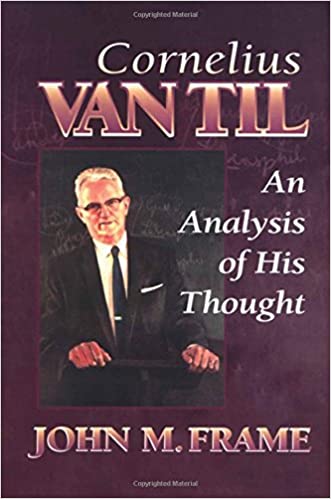A Brief Book Summary from Books At a Glance
About the Author
John Frame is a Christian scholar who has written numerous important books in the areas of theology, philosophy, apologetics, and ethics.
Introduction
This book is an exposition, explanation, and critical analysis of the thought of Cornelius Van Til. Frame is a sympathetic supporter of Van Til and a presuppositional apologist, but he is willing to disagree with Van Til at various points. This is a very interesting book from both an academic and personal standpoint.
Table of Contents
Part 1: Introductory Considerations
- Starting Point
- Van Til’s Life and Character
- Van Til’s Place in History
Part 2: The Metaphysics of Knowledge
- God: Self-Contained Fullness and Absolute Personality
- The Trinity
- The Sovereignty of God
- Analogical Knowledge
- The Clark Controversy
- Revelation
- Presuppositions
- The Primacy of the Intellect
- Logic
- The Analogical System
- Evidence
Part 3: The Ethics of Knowledge
- Antithesis
- Common Grace
- Rationalism and Irrationalism
Part 4: The Argument for Christianity
- The Traditional Method: The Church Fathers
- The Traditional Method: Thomas Aquinas
- The Traditional Method: Joseph Butler
- The Traditional Method: Edward J. Carnell
- Spiral Argument
- Reasoning by Presupposition
- Apologetics in Action
Part 5: Van Til as Critic
- Greek Philosophy and Scholasticism
- Immanuel Kant and Karl Barth
- Herman Dooyeweerd
Part 6: Conclusions
- Van Til’s Successors
- Van Til and Our Future
Summary
Part 1: Introductory Considerations
This book is designed to offer an analysis of the thought of Cornelius Van Til that combines sympathy, comprehensiveness, and critical analysis. Some have been sympathetic supporters whereas others have tried to debunk his thinking; neither have provided much helpful critical analysis. The kind of analysis that is needed is one that takes the system as a whole but looks at its details. Van Til was both a scholar and a movement leader. Often those who follow movement leaders cultivate an insider-outsider approach where they uncritically embrace the teachings of their leader and see those who disagree with them as enemies.
Van Til would want his thinking to be challenged and reformed by Scripture, and he welcomed biblically and theologically informed critiques of his work. However, not all of his disciples have allowed their master to be criticized. Frame found some of Van Til’s graduate courses to be like movement boot camps, where those who disagreed with presuppositionalism could be written off as Arminians or simply dismissed. Frame was allowed to teach courses with Van Til’s consent, but they were not close personal friends and Frame was always a bit on the margins of the pure presuppositionalists.
Van Til was the son of a Dutch farmer and attended Calvin College. His Ph.D. in Philosophy was from Princeton University. Amongst other theological influences, he learned from Berkhof, Kuyper, and Herman Bavinck. He learned that non-Christian worldviews were antithetical to the worldview of Scripture. Van Til served in the Orthodox Presbyterian Church and taught at Westminster Theological Seminary. Over his career, he published voluminously, but he also put much work into teaching and helping his students. He had an incredible mind and encyclopedic knowledge in philosophy and theology, but many have found him opaque and hard to understand. . . .
[To continue reading this summary, please see below....]The remainder of this article is premium content. Become a member to continue reading.
Already have an account? Sign In
Buy the books

CORNELIUS VAN TIL: AN ANALYSIS OF HIS THOUGHT, by John M. Frame